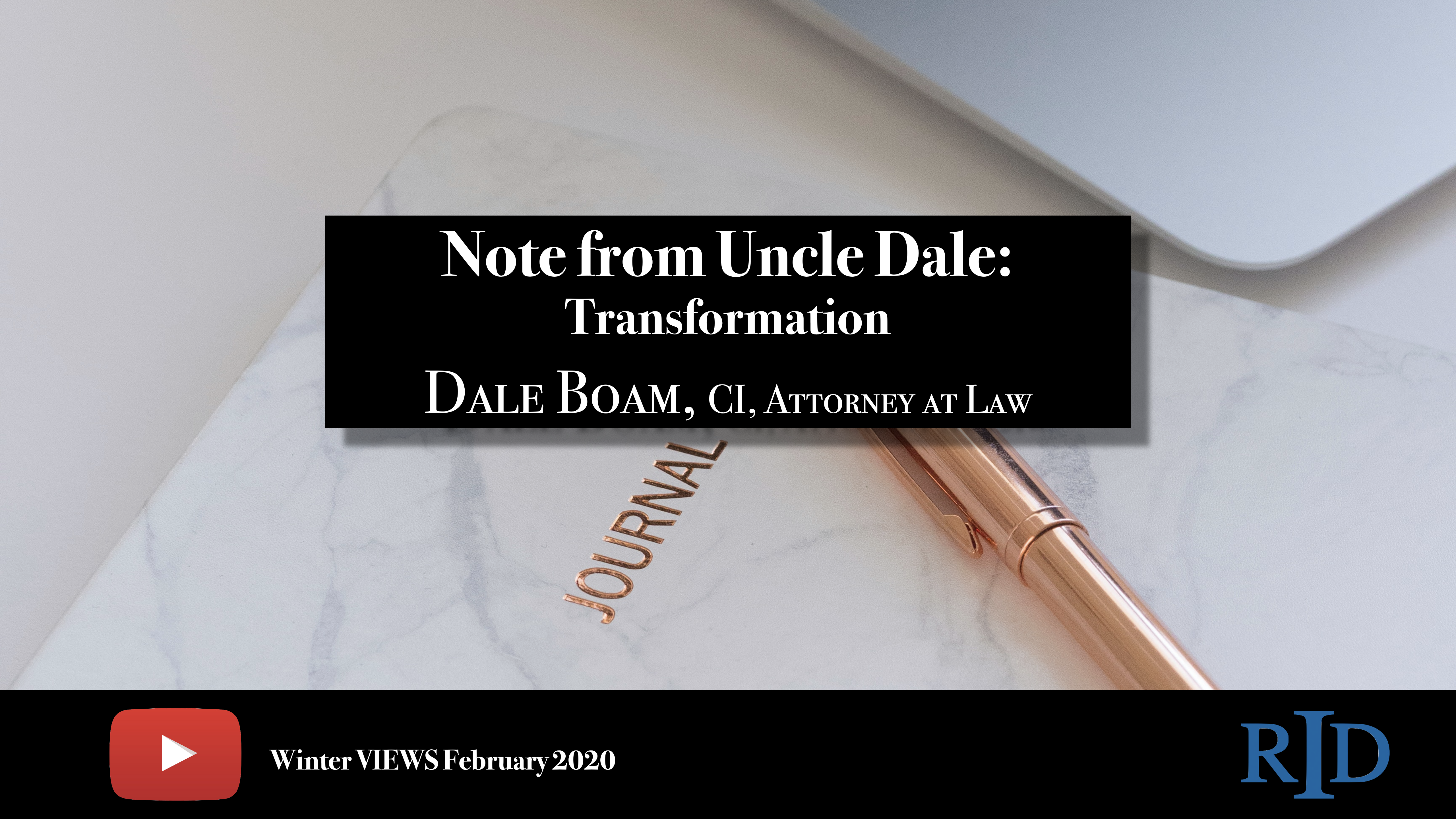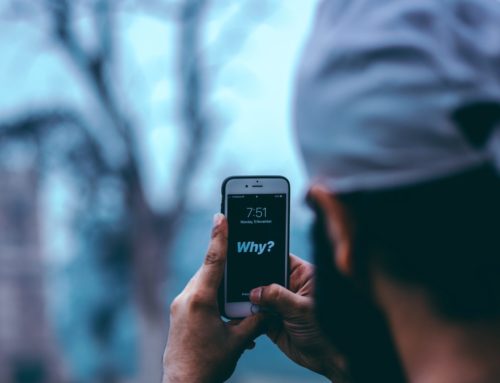Don’t Do Dumb Things
Dale Boam, CI, Attorney at Law
My grandfather used to say if you use a tool incorrectly it will break, and if you use a tool properly and take care of it, it will break—but much much later. I have a Rule (I have many actually) that states that the Code of Professional Conduct can be abridged in one simple sentence:

Way back in 1993, I did not follow my own advice and I got a practical exhibition of my grandfather’s wisdom. While interpreting at an all-day appointment alone I tore two ligaments in my right wrist. It happened at about 1:00 in the afternoon. There was this snapping feeling in my forearm and then I felt tingling in my fingers, and the pain started about ten minutes later. Oh, by the way, I finished the appointment at about 4:30 that afternoon.
That is not bragging about how committed I am, that is admitting to my stupidity. Years of physical therapy, weeks in a cast, and years and years of better judgment later, it still causes me problems. I did a dumb thing and broke one of my tools. I later had the opportunity to design the course curriculum for the Deaf Studies: Interpreting Emphasis degree at the university where I teach, and because of this incident, I designed a course that focused on practical self-care for interpreters.
We work in a profession where no matter how careful we are, our tools will break. Hopefully later, much later, rather than sooner, so I designed a class that covered the basics of how to postpone the inevitable repetitive motion injury as long as possible. I used my own experience and consulted with medical professionals and the physical education department at the university where I teach, and (PAH!) The Physiology of Interpreting was born.
The course covers breathing, posture, balance, hand-eye coordination, sleep patterns, and nutrition (because you don’t want to die of heart disease before you have a chance to develop carpal tunnel syndrome). We discuss the anatomical structure of the hand, wrist, elbow, shoulder and back. We also discuss early warning signs of the most common repetitive motion injuries, ergonomics, and low impact sign production (I should not be able to hear your signs!). We self-evaluate interpreted texts to identify dangerous habits and we discuss conservation of movement and the importance of rest and exercise.
It’s also fun, because there are so many cool ways to teach the basics. For example, we explore the coordinated movements of the hand and forearm muscles by learning to roll a quarter down our fingers and to “palm a quarter” like magicians do. We explore the brain’s ability to predict body placement in space and calculate movement (conservation of movement and hand-brain coordination) by teaching the students how to juggle. We use Wii Fit Plus to evaluate balance and we play games that require balance and coordinated movement.
I can’t keep all my students safe in this crazy world—but I can keep them working without pain for as long as possible. If you have not paid attention to how your “lifestyle” may impact your longevity in this profession, pause and think about it now. Start with this exercise from the course, document your life for one week, and be brutally honest with yourself:
-
Document everything you eat: use your phone camera as a way to document everything you put in your mouth, from a tic-tac to a buffet. Everything. Note the times you eat.
-
Document all the water you drink: get a bottle with measuring lines. Try not to change your behavior but realize if you start to carry a water bottle, you will naturally drink more.
-
Document how much you sleep: what time do you shut down? Not just get in bed, but actually try to sleep. If you wake up in the night, mark it. What time do you wake up? Do you take catnaps? Mark them.
-
Record your aches and pains: do you wake up each day with a pain you ignore? Do you get an upset stomach at the same time each day? Document when you feel it. If something makes it worse or better, mark it.
-
Document your exercise: first, define what exercise is for you. Time at the gym? Walking to the next class all the way across campus? Mark your activity, time of day, and duration.
-
Document your bad habits: do you smoke? Mark each time to take a smoke break and how much you smoke. Weed? Mark it. Alcohol? Mark it. Medications? Do you take them on schedule and in the proper amounts? Document it.
At the end of the week, look at your documentation. How different is your real life from the life you imagine you live? Which habits should you change? This gives an honest starting place from which to develop a self-care plan. Try it. It is usually shocking… mainly because we are with ourselves all the time but never remember eating poorly or not getting enough sleep.
You don’t have to take my class to learn how to focus on self-care, but you should take a workshop on self-care, or a community education course on healthy living. It will keep you in the game longer and you will enjoy the time you play more. Most importantly, be careful out there, take care of your tools and watch out for each other—we are all we’ve got.
Dale Boam, CI, Attorney at Law, is an Associate Professor of Deaf Studies at Utah Valley University, an attorney advocating for the rights of persons who are Deaf, an interpreter, and a blogger at “Uncle Dale’s Rules for Interpreters.” He consults and presents nationally on both interpreting and legal topics. Dale recently received a favorable decision from the Ninth Circuit Court that makes Section 504 more accessible to persons who are Deaf (See Ervine v. Desert View Regional Medical Center). Dale has served in advisory committees for the NAD, the organizing board for Deaf Studies, Today!, and the 2007 Deaflympic Games.









I must thank you for the efforts you’ve put in writing this blog.
I’m hoping to check out the same high-grade content by you
in the future as well. In truth, your creative writing abilities has motivated me to get my
own website now 😉